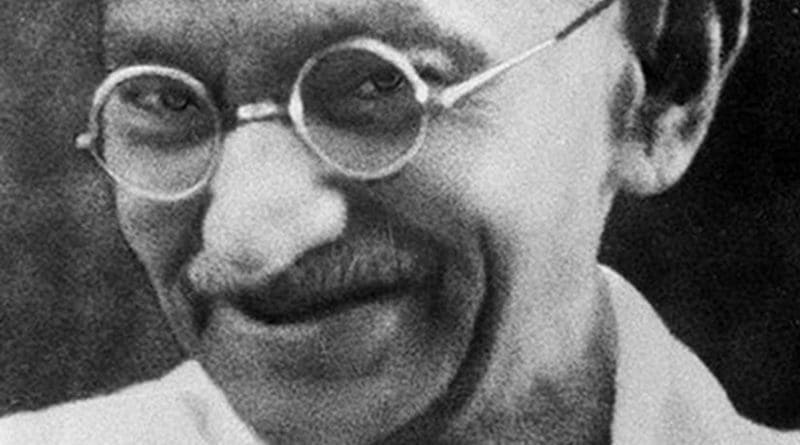Let India Rethink Prohibition On Mahatma Gandhi’s Birth Day – OpEd
Prohibition was the cause very dear to Mahatma Gandhi. Gandhi realized that the liquor habit was contributing to indiscipline amongst people and disruption of the peace in the families, particularly affecting the women and children in the lower income group. Mahatma Gandhi launched a strong country wise campaign demanding prohibition and wrote several articles and spoke in many meetings about his conviction that imposition of prohibition is a pre condition to improve the quality of life of people in India.
It would be appropriate for India to remind itself about Gandhiji’s commitment to prohibition on 2nd October, his birth day.
Constitution supports prohibition
In Article 47 of the Indian Constitution, it has been clearly said that the state should endeavour to bring about prohibition of intoxicating drinks and drugs ,which are injurious to health and social welfare.
In such circumstances, it is surprising that the Patna High Court in Bihar state has quashed the Bihar government’s notification imposing complete ban on the liquor in the state and struck down the April,5 notification of Bihar government to stop consumption and sale of alcohol in the state. The Patna High Court has said that the Bihar government’s notification was beyond the powers of the Constitution and not enforceable.
Many persons would find it difficult to understand the logic of the Patna High Court ,particularly since Article 47 of the Constitution asking for endeavour to bring about prohibition was very clear in content and objective.
Those who oppose prohibition
Of course, there are liquor addicts and section of media who support the decision of Patna High Court, calling it as a step towards upholding the liberty of individuals and the right to privacy guaranteed by Constitution.
While talking about liberty, such opponents of prohibition do not seem to understand that liberty cannot be a mere personal affair but it has to be a part of social contract and adjustment of the interests of all concerned. The opponents of prohibition should not be unmindful of the harm that is being done to the fibre and fabric of society by large section of people becoming liquor addicts, that severely affect the peace, harmony and economy of thousands of families in the country.
Findings of the study
A recent report prepared by Alcohol and Drug Information Centre and submitted to Government of India has said , on the basis of the detailed study, that 35% of crime, 50% of road accidents and 55% of violence in families happen in India due to the fast spreading liquor habit.
Another report prepared by Ministry of Home Affairs, Government of India has concluded that for every one rupee of income that government would get by way of tax from sale of liquor, the society would incur loss of Rs. 4 due to the consequent health issues, fall in productivity of the individuals , absenteeism etc.
Income appear to be the goal of state governments
The obvious fact is that most of the state governments in India have lifted prohibition to augment their income by way of levies and taxes on sale of alcohol, unmindful of the ground reality that welfare of the society and people are severely affected due to liquor habit.
For example, in Tamil Nadu, the state government has gone to the extent of taking over the entire sale of liquor by forming a separate company for the purpose and it is now earning around Rs.270,000 million every year by way of tax collection due to sale of liquor through the government company. This income due to liquor sale amount to around 30% of the total revenue of the state. There is widespread criticism on the liquor policy of the Tamil Nadu government.
Are the judges right?
What is particularly surprising is that the judges in the Patna High Court did not seem to care to think about the social benefits of prohibition and the demand of women all over the country to curb the liquor habit in the society.
By the judges interpreting the Constitutional provision in a way that gives misgivings, the decision of the Patna High Court has caused set back to the progress of the prohibition movement in the country.
There are so many social evils which are banned by law in India such as trafficking of women, narcotic drugs etc. Will the judges in the Patna High Court argue that such ban should also be lifted, since it denies the right to people to consume narcotic drugs, etc?
Bihar Chief Minister should pursue the cause
The Chief Minister of Bihar should appeal to Supreme Court against the decision of the Patna High Court This would be the best tribute that Mr. Nitish Kumar, Chief Minister of Bihar, would pay for the memory of Mahatma Gandhi.

